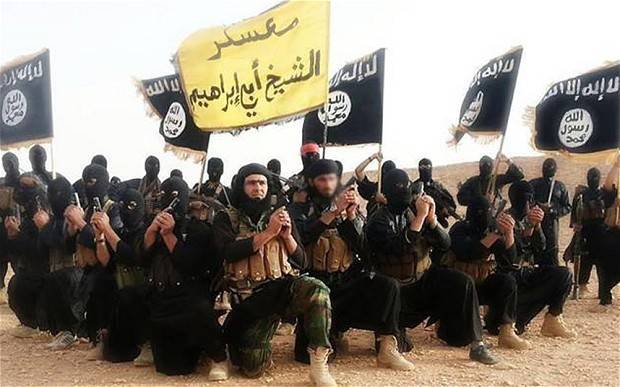WASHINGTON-The Obama administration is debating a more robust intervention in Syria, including possible American air strikes, in a significant escalation of its weeks-long military assault on the Islamic extremist group that had destabilized neighboring Iraq and killed an American journalist, officials said today.
While President Obama has long resisted being drawn into Syria’s bloody civil war, officials said recent advances by the Islamic State in Iraq and Syria had made clear that it represented a threat to the interests of the United States and its allies. The beheading of James Foley, the American journalist, has contributed to what officials called a “new context” for a challenge that has long divided the president’s team.
Officials said the options include speeding up and intensifying limited American efforts to train and arm moderate Syrian rebel forces that had been fighting both ISIS as well as the government of President Bashar al-Assad. Another option would be to bolster other partners on the ground to take on ISIS, including the Syrian Kurds.
But American officials said they would also take a look at airstrikes by fighter jets and bombers as well as potentially sending Special Operations forces into Syria, like those who tried to rescue Mr. Foley and other hostages on a mission in July. One possibility officials have discussed for Iraq that could be translated to Syria would be a series of unmanned drone strikes targeting ISIS leaders, much like those conducted in Yemen, Somalia and Pakistan.
“If you come after Americans, we’re going to come after you, wherever you are,” Benjamin J. Rhodes, the president’s deputy national security adviser, told reporters in Martha’s Vineyard, where Mr. Obama is on a much-interrupted vacation. “We’re actively considering what’s going to be necessary to deal with that threat and we’re not going to be restricted by borders.”
American operations against ISIS in Syria would expand the scope and goals of the military intervention Mr. Obama ordered in Iraq two weeks ago. At the time, the president said he authorized air strikes to defend American personnel and prevent the genocide of religious minorities threatened by ISIS.
But he has also ordered strikes to help Iraq’s government reclaim control of the vital Mosul Dam from ISIS. Sending American warplanes or drones to cross the border into Syria would mean that he was now taking on the mission of degrading or even crippling ISIS, which has established what it calls an Islamic caliphate on a wide band of territory across the two countries.
An expanded intervention into Syria would represent a striking turnaround for a president who has opposed such a move before, and some administration officials therefore doubt that he will agree. From the start of the Syrian civil war, Mr. Obama’s response has been marked by a pattern of heightened public statements and indications of stepped-up involvement, followed by far less action than suggested.
Friday, April 19, 2024
U.S. weighs direct military action against ISIS in Syria

Caption: U.S. weighs direct military action against ISIS in Syria
Rashakai pSEZ to get Rs470.78m solar panels project
April 19, 2024
Dubai Underwater
April 19, 2024
X Debate Continues
April 19, 2024
Cartoon
April 19, 2024
The Escalating Nature of Threat
April 19, 2024
Hepatitis Challenge
April 18, 2024
IMF Predictions
April 18, 2024
Wheat War
April 18, 2024
Rail Revival
April 17, 2024
Addressing Climate Change
April 17, 2024
Justice denied
April 18, 2024
AI dilemmas unveiled
April 18, 2024
Tax tangle
April 18, 2024
Workforce inequality
April 17, 2024
New partnerships
April 17, 2024
ePaper - Nawaiwaqt
Advertisement
Nawaiwaqt Group | Copyright © 2024





